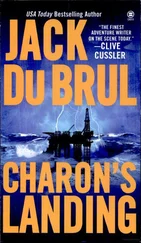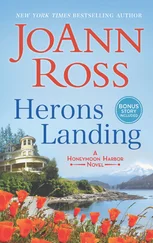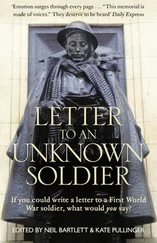“A recommendation?”
“Yes, Steve.” Harriet knew the nagging tone she used when she was telling Jack to do his homework had crept into her voice, but she allowed it. “A recommendation. I’ll write it for you, if you like. I’ve got all these pieces I’ve filed in the past week to show. Video as well as radio. You’ll only have to okay it. Simple. Then it’s out of your hands.”
Steve looked at her. “Have we met before?” he asked. “I’m Steve.”
“It’s the ash cloud,” she said. “New horizons.”
“I’m nodding like I understand what you’re talking about,” said Steve.
She’d meet with Mallory. There was a general election around the corner. News coverage would increase exponentially for that event, and everyone who was anyone would be working that night. She’d offer up her expertise; she’d get herself back into the mainstream. Away from local radio. Back into television news, where she’d been before she met Michael, before she’d had Jack. On television, reporting.
Jack was lying on the sofa with the television on, asleep. Harriet could see he was drooling slightly. The carpet between the sofa and the coffee table had an asymmetrical layer of broken crisps ground into it. She spotted his backpack by the front door. He’d eaten the sandwiches she’d made him for lunch. He’d even got out his homework—Harriet could see it on the coffee table amid the dirty glasses and games controllers. In the kitchen, she put a frozen meat pie into the oven and began to clear the dishes. She’d wake him when it was ready.
She turned on her computer and clicked on the BBC’s live news feed. All day they’d been reporting that negotiations over lifting the flight ban were nearing completion. She made a salad and was sitting at the counter, waiting for the pie to be ready, propping up her heavy head with both hands, when the announcement came. Heathrow was reopening. At 10 p.m. the planes would start flying again. The first flight to take off was heading for Vancouver, Canada. Harriet pictured the airport waking, the departure boards blinking back to life. She thought of Michael. She picked up the phone and dialed his BlackBerry, and left a message when he didn’t reply. God knows how long it would take him to find a seat on a flight back to London.
It was peculiar—Michael had been gone less than two weeks, but it felt like much longer. There was a lot to tell him. He’d be pleased. She went to wake Jack. The pie was ready.
Jack didn’t mind that school had started again. It was always good to see his friends, and classes didn’t really get in the way of socializing. He’d found his first year in the school terrifying, what with the massive scary boys and shrieking terrifying girls in the playground, and so he hung out mostly with his old friends from primary school. Primary school was a doddle compared to secondary. His primary school was small and sweet, with lovely colourful classrooms and cuddly teachers, and awards for good behaviour that hardly anyone got because everyone was good pretty much all of the time. Moving to secondary school had been traumatic. Jack felt as though he’d stolen a loaf of bread and been sent on convict transport to Australia. The school was a wild frontier, and he’d spent most of Year Seven worrying someone was going to kill him.
But he survived, and then in Year Eight he began to make new friends and find his way. It stopped bugging him that the big boys teased him for being middle class. They tried calling him Smoked Salmon because his mum sent him to school with smoked salmon and cream cheese sandwiches instead of—what? Jack didn’t know, chips in a white roll? Luckily, the nickname didn’t stick. It was a crap nickname, and he liked the sandwiches his mother made. Once he began to grow, everything got easier. It’s a simple truth that all it takes to intimidate a bully is a few inches of extra height.
Now, in Year Nine, Jack was fully acclimatized. He had learned the lingo. He didn’t look confused when someone said “Wa’gwan” instead of “What’s going on?” He’d learned to walk with his school trousers hanging off his butt. He knew when it was safe to go into the loos.
The first week back after the Easter holidays, he and his friends got into a nice routine of hanging out together after school. Jack’s mum was still working much longer hours than normal and his dad was still stuck in Toronto. Half the teachers were stranded wherever they’d gone for their holidays, and a good chunk of the student body was absent as well. On Wednesday after school, Jack and his friends headed over to the local park. He produced his bag of draw, and they smoked a couple of spliffs and slipped into their cotton-wrapped world. They had the best conversations about everything. The sun shone and it was warm.
Everyone was lying on the grass, except Dore, who was on a swing. He was kicking his legs out hard, swinging higher and higher, when a plane passed overhead, lower than usual.
“I loved the empty sky,” Ruby said. “I loved the silence.” Her family lived farther west toward the airport, their house wedged beneath the flight path.
“It was too strange,” Jack said. “I prefer it this way.”
“Why?”
“The noise, the way the planes fly so low—I like knowing I could get on one and fly away. Besides, my dad can come home now.”
“Well, I don’t like it,” said Ruby. “Our house shakes.”
“Hey!” shouted Frank. When Frank got a bit wavy he’d automatically start shouting, as though smoking made him deaf. “What about David McDonald’s party on Friday? Are we going?”
They looked at Ruby expectantly.
“I’ll do my best,” she said, and she gave a little shrug that made Jack want to hug her. But he did not.
Yacub was next in line in the queue at the water pipe when he saw the girls go by. There were six or seven of them, in a white stretch Mercedes limo, with the black-tinted windows rolled down. The limo drove past slowly, and the girls were laughing and chatting. He guessed they were Pakistani, he could hear last year’s big Javed Bashir song blaring through the window. The men in the queue stared, even the man at the pipe looked away from his task, spilling water on the bone-dry ground. Then the limo turned a corner and was gone.
In the labour camp, the days trickled by in a sweat-soaked haze. Yacub tried to stay busy to stop himself from losing his grip—all around him, men were losing their grip. There’d been no electricity for months and the sewage truck had stopped coming. The only functioning standing pipe in the camp was about half a kilometre away from his building, so Yacub was among the small contingent who went to fetch water regularly. The population of the camp had declined fairly rapidly, by about a third, in the first month after the building company collapsed, as those who could afford to had left and a lucky few found other work. Because Imran, their foreman, had disappeared straight away, none of the Pakistanis Yacub knew had been able to find work—no referee, no references—and many of the building projects in Dubai had ground to a halt. After that first rush of departures, the population of the camp had levelled out: there were about one thousand men stranded now, with no way of leaving, mainly Indians, but Pakistanis, Bengalis, and a few Sri Lankans too. Many spent all day every day lying on their bunks. Yacub kept himself busy, helping out, organizing.
Early on, local shopkeepers had begun to extend lines of credit to the abandoned workers even though they must have known they stood a good chance of never being paid. Yacub was not among the delegation who visited the shops regularly, he couldn’t face that, but he was happy to haul water and to forage for fuel for the makeshift ovens in the communal kitchen. He was among the regular delegation to the Pakistani Workers’ Council offices, though those visits entailed a long dusty walk of several hours. Once there, he’d stand in the queue for a few hours more, before being told there was nothing they could do to help. Back at the camp they’d agreed to keep the visits up to make sure they were not forgotten. There were persistent rumours that the government of Pakistan was going to help the workers go home, but Yacub didn’t believe them. Occasionally, the council distributed food for the men to carry back to the camp.
Читать дальше












